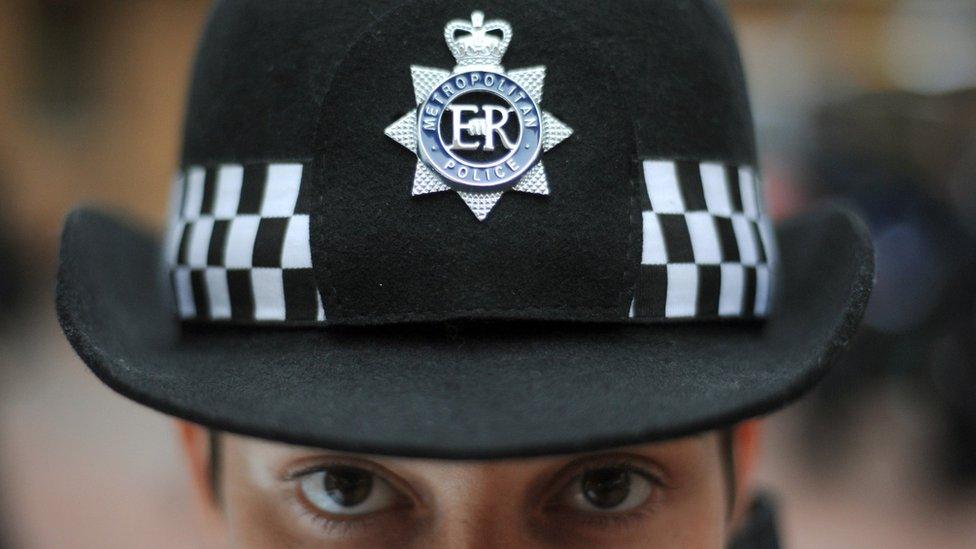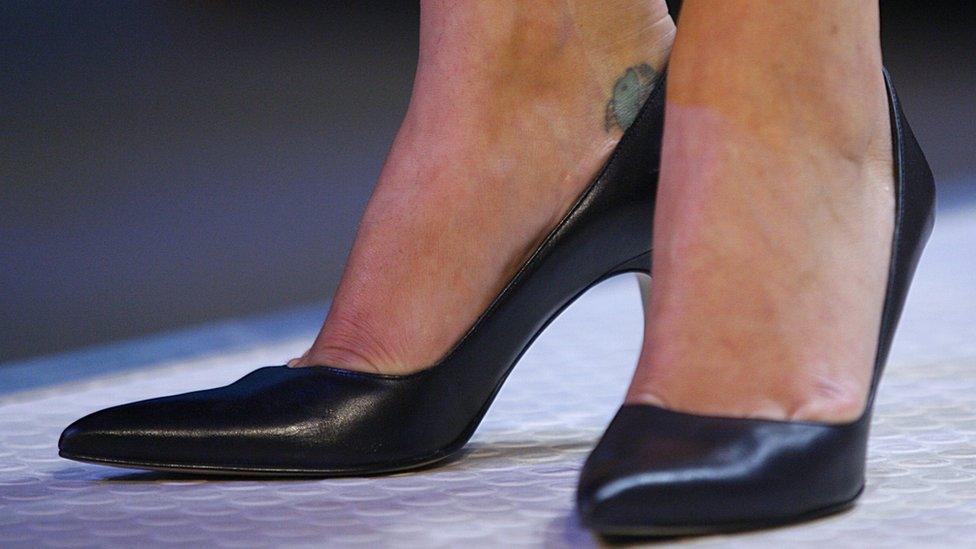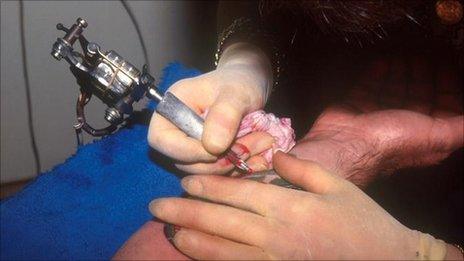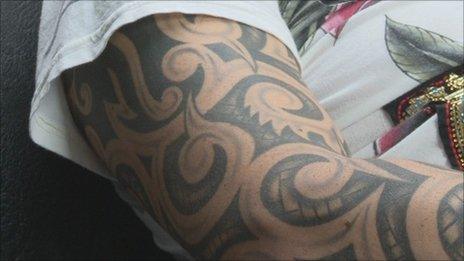Lift police visible tattoo bans, says federation
- Published

Police officers should be allowed to have tattoos on their hands, neck and even faces, the Police Federation of England and Wales says.
It believes a ban on visible tattoos imposed by many forces may hamper the recruitment of promising candidates.
The Met Police has banned officers from having tattoos visible on their hands or face since 2012.
But Ch Insp Vicki Martin, of the federation, says there should be a "sensible conversation" about tattoos.
She told BBC 5 live: "There's a lot of women are now having very small tattoos on their neck, and if you've got a woman that's got a small heart tattooed behind her ear, it's something that you probably wouldn't even notice.
"So why are we just saying that we're not even going to look at your application, because that might be a very talented individual that we would want in the service."
Public opinion
The Home Office's guidance on tattoos, external says candidates with visible tattoos or facial piercings "may be eligible for appointment" and that each case must be considered on its merits.
Ch Insp Martin added that the Home Office's guidance "appears on face value to be quite sensible".
"The issue we've got is a number of forces are interpreting it differently and some are becoming very strict and I think it's actually becoming a bar to some really good people joining the service."
She also pointed out that modern-day role models often have tattoos, including Samantha Cameron, wife of former Prime Minister David Cameron, who has a small tattoo which was visible when she attended official functions.
"People sometimes have tattoos and don't think about the consequences of them in the future. That's why it's time we actually ask the public what they think and make sure that we haven't got policies in place based on what we think the public think, rather than what they actually do think."
The federation is conducting research, external on the attitudes of the police service and the public towards officers with tattoos. Its results are expected by the end of September.
Aside from its ban on new recruits having tattoos on the hands and face, the Met Police also insists all other tattoos must be covered.
The federation says it wants "national standardisation, rather than local interpretation".
It added: "We are calling for a modern, consistent national approach to tattoos to be adopted across the police service. [The federation] believes that if the police service truly wants to embrace diversity and widen the talent pool it recruits from, then forces need to be more open-minded, so communities have a police service that reflects today's society."

Samantha Cameron's dolphin tattoo, seen here at a Conservative party conference
But Byron Davies, Conservative MP for Gower who served in the Metropolitan Police for more than 30 years, said he was against allowing officers to have visible tattoos.
Some people might say tattoos devalue the uniform itself, he added.
"The whole point of having a uniform is it's a distinctive set of clothing. If you start adding to it with tattoos on arms, or particularly on the hand or neck, where people can see the ex-wife or the husband's details, then some people might find that offensive."
A Met Police spokesman said: "We expect our officers and staff to maintain a high standard of personal appearance and dress that reflects the role being performed.
"This supports the reputation of the Metropolitan Police Service as a professional and globally respected policing service with Londoners, visitors to London and tourists.
"Where officers or staff have tattoos that cannot be covered by everyday clothing (i.e. on the face, above a collar line and on the hands) it is a requirement that they register such tattoos as a formal written declaration to their line manager."
Failure to register an existing visible tattoo can mean disciplinary action, he added.
- Published17 October 2012

- Published25 July 2011
